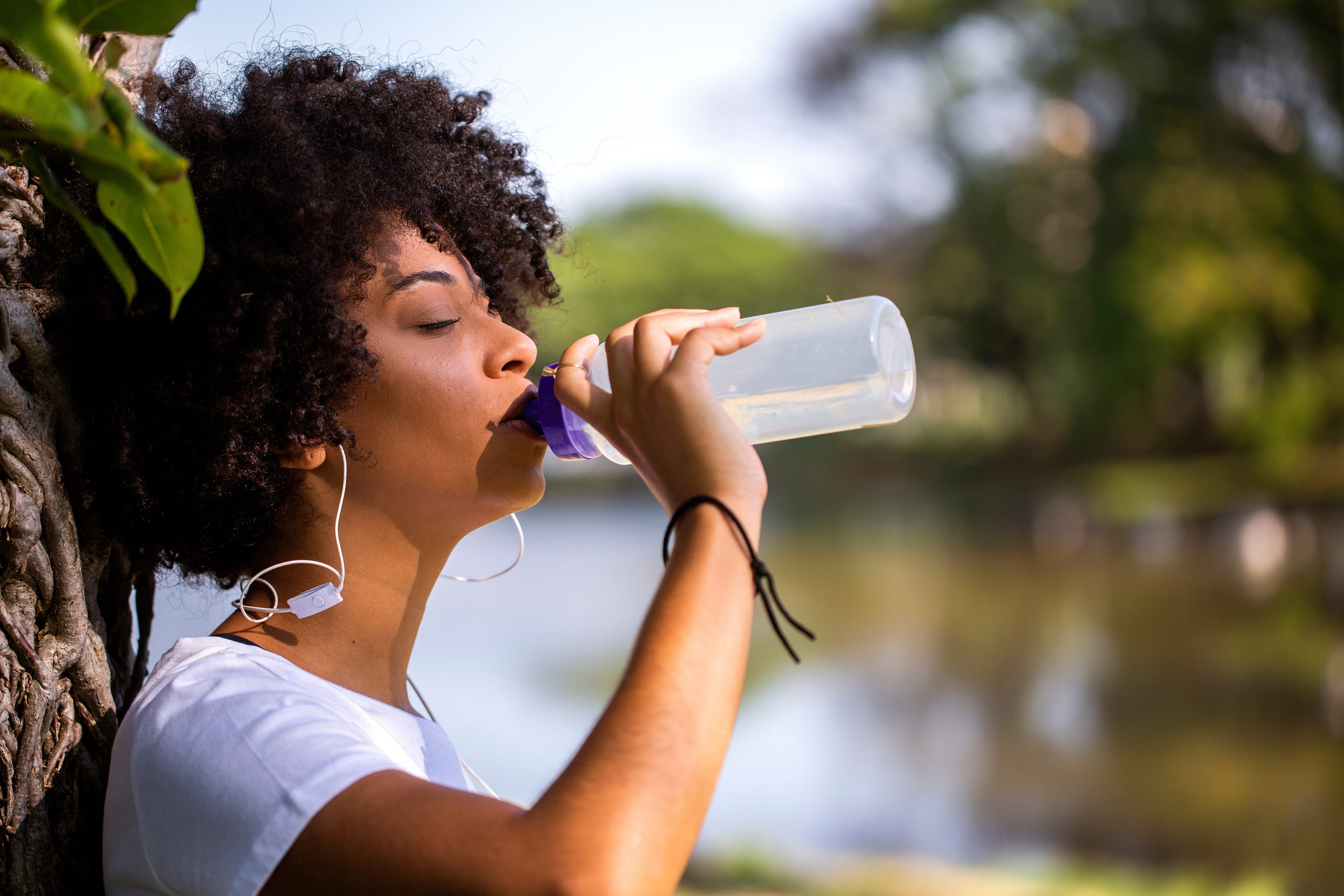
Skip the bottled drinks—this is why pure water is best for your body.
Our lives literally depend on water. The human body is made up of about 60% water and every bodily system needs it to function. Water regulates body temperature, heart rate and blood pressure. It’s also essential for healthy skin, hair and nails.
It’s important to drink enough fluids every day to keep your body properly hydrated. Many factors contribute to how much you need to drink. Your overall health, medications, exercise level and diet all affect your body’s hydration needs. As temperatures rise, you’re also more likely to sweat and that can lead to dehydration if you don’t replace lost fluids.
Will you know if you’re dehydrated?
Signs of dehydration include headaches, as well as feeling tired, cranky or thirsty. Your urine may be dark or you may not urinate much. Your mouth may feel dry. If you experience these symptoms, your body is telling you it needs more fluids.
What should you drink to hydrate?
Drinking water is the best way to rehydrate. Many people don’t like drinking water so they think they can substitute other drinks in place of water to stay hydrated. Many bottled drinks are marketed as a means to not only help with hydration, but to provide vitamins, minerals and other good-for-you perks. However, these drinks are typically not as healthy as you think—and some may even cause you to become more dehydrated.
The drinks listed below may serve a specific purpose, but they shouldn’t be a replacement for water on a regular basis:
-
-
- Enhanced Waters: Water-based drinks boasting that they’re filled with vitamins may not be as good for you as you think. Many contain vitamins, such as B and C, that are rarely lacking in the average person’s diet. What they do contain is sugar or artificial sweeteners. For example, a 20-ounce bottle of Vitaminwater has about 30 grams of sugar—almost as much as a bottle of soda. You’re better off drinking plain water and getting your vitamins from food.
- Flavored Waters: While water is the main ingredient in most of these drinks, pay close attention to the labels. Some use artificial sweeteners, while others add natural sweeteners. They may also contain artificial flavors and colors—things you don’t get when you start with water and flavor it yourself.
- Sports Drinks: These are designed for highly active people who participate in intense athletic activities. If this doesn’t describe you, sports drinks probably shouldn’t be a regular part of your diet because they typically contain a lot of sugar and sodium, which may contribute to weight gain and high blood pressure.
- Energy Drinks: While many energy drinks contain vitamins, they also contain caffeine and often sugar. Drinking these on a regular basis may lead to heart arrhythmias, headaches, high blood pressure and anxiety. Read labels carefully to see what’s in any drink you consume and don’t use these drinks as a regular source of hydration.
-
How do you make water taste better?
Since water is the best way to stay hydrated, it’s worth finding ways to make it more appealing. If plain water doesn’t tempt you to keep sipping, try these tips:
-
-
- Drink fizzy water, like plain seltzer
- Add slices of lemon, lime, cucumber or orange
- Infuse water with chopped mint leaves or basil
- Mix seltzer with a touch of cranberry or any natural fruit juice (3-parts seltzer:1-part juice)
- Drink iced herbal or green tea (decaffeinated only and skip the sweeteners)
-
Can foods also help keep you hydrated?
Although you should aim to get most of your fluid needs by drinking water, you’ll be happy to know that some fruits and vegetables also help keep you hydrated. Naturally-hydrating foods that also supply loads of other nutritional benefits include watermelon, oranges, grapefruit, melon, celery, cucumbers and tomatoes.
Copyright 2022 © Baldwin Publishing, Inc. All rights reserved.
Health eCooking® is a registered trademark of Baldwin Publishing, Inc. Cook eKitchen™ is a designated trademark of Baldwin Publishing, Inc. Any duplication or distribution of the information contained herein without the express approval of Baldwin Publishing, Inc. is strictly prohibited.
Date Last Reviewed: May 11, 2022
Editorial Review: Andrea Cohen, Editorial Director, Baldwin Publishing, Inc. Contact Editor
Medical Review: Jane Schwartz, RDN, CLT
Learn more about Baldwin Publishing Inc. editorial policy, privacy policy, ADA compliance and sponsorship policy.
No information provided by Baldwin Publishing, Inc. in any article is a substitute for medical advice or treatment for any medical condition. Baldwin Publishing, Inc. strongly suggests that you use this information in consultation with your doctor or other health professional. Use or viewing of any Baldwin Publishing, Inc. article signifies your understanding and agreement to the disclaimer and acceptance of these terms of use.